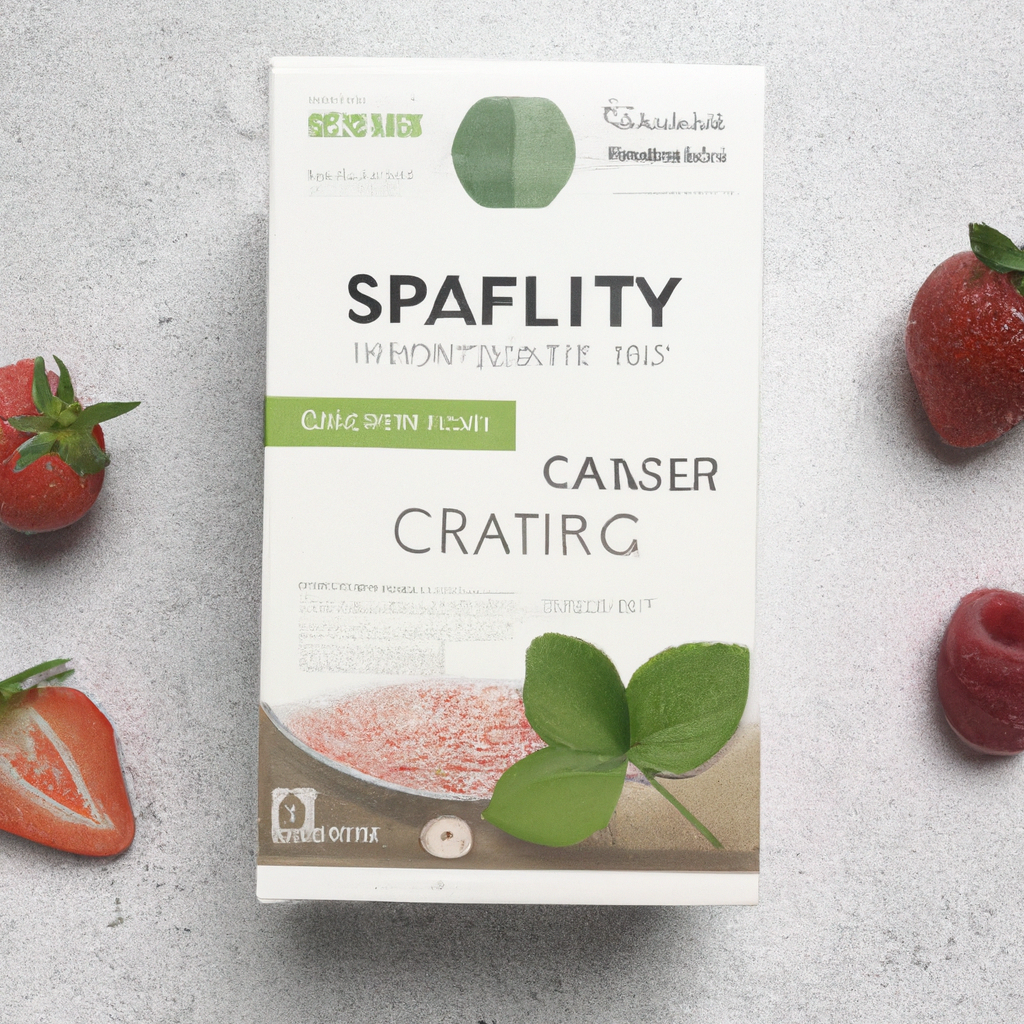If you’re looking for the ultimate guide to the best natural health supplements, then you’ve come to the right place. In this article, we’ll explore the top-rated, tried-and-tested options that can help boost your overall well-being. From immune-boosting vitamins to stress-relieving herbs, we’ll uncover the secrets behind these fantastic products that will support your body’s natural healing abilities. So sit back, relax, and get ready to discover the best natural health supplements that will take your health to the next level.
Vitamins and Minerals
Multivitamins
Multivitamins are a popular choice for individuals looking to ensure they are meeting their daily nutrient requirements. These supplements typically contain a combination of essential vitamins and minerals in one convenient dose. By taking a multivitamin, you can help fill any nutritional gaps in your diet, especially if you have a busy lifestyle or struggle to consume a diverse range of nutrient-rich foods regularly.
Vitamin D
Vitamin D, commonly known as the “sunshine vitamin,” plays a crucial role in maintaining bone health, supporting immune function, and regulating mood. While our bodies can produce vitamin D when exposed to sunlight, many people may not get enough sun exposure due to various factors such as location, the use of sunscreen, or spending a significant amount of time indoors. Therefore, supplementing with vitamin D can be beneficial, especially for those living in regions with limited sunlight.
Vitamin C
Vitamin C, also known as ascorbic acid, is famous for its immune-boosting properties. It is a powerful antioxidant that helps protect the body against oxidative stress and supports the production of collagen, a protein essential for healthy skin, joints, and connective tissues. Additionally, vitamin C aids in the absorption of iron from plant-based sources and promotes overall well-being.
Vitamin B12
Vitamin B12 is essential for energy production, maintaining a healthy nervous system, and forming red blood cells. This vitamin is primarily found in animal-based foods, making it a crucial supplement for vegetarians and vegans or individuals with poor absorption of nutrients due to certain medical conditions. Taking a vitamin B12 supplement can help prevent deficiencies and support optimal cognitive function.
Magnesium
Magnesium is involved in over 300 biochemical reactions in the body and plays a role in numerous processes, including muscle and nerve function, blood pressure regulation, and protein synthesis. It also contributes to a sense of relaxation and aids in quality sleep. However, many people may not get enough magnesium from their diet alone, making supplementation beneficial for maintaining healthy magnesium levels.
Iron
Iron is a vital mineral that is responsible for transporting oxygen throughout the body, supporting metabolism, and promoting the production of red blood cells. Iron deficiencies can lead to fatigue, weakness, and impaired cognitive function. While it is crucial to obtain iron from dietary sources, some individuals, such as pregnant women or those with certain medical conditions, may require iron supplementation to meet their needs.
Calcium
Calcium is widely recognized for its role in maintaining strong and healthy bones and teeth. Additionally, this mineral is involved in muscle function, nerve transmission, and blood clotting. While dairy products are often associated with calcium, individuals who follow a plant-based diet or have lactose intolerance may need to consider calcium supplementation to ensure adequate intake.
Zinc
Zinc is necessary for various bodily functions, including immune system support, wound healing, and DNA synthesis. It also plays a role in taste and smell. Zinc deficiencies can lead to impaired immune function and delayed wound healing. Supplementing with zinc can be beneficial, especially for individuals with limited dietary intake of zinc-rich foods or those with certain medical conditions that affect zinc absorption.
Omega-3 Fatty Acids
Omega-3 fatty acids are essential fats that are crucial for brain function, heart health, and reducing inflammation in the body. They are primarily found in fatty fish like salmon, mackerel, and sardines. However, individuals who do not consume enough fish or follow a vegetarian or vegan diet may consider omega-3 supplements derived from algae or flaxseed oil to reap the benefits of these essential fats.
Herbal Supplements
Turmeric
Turmeric is a yellow spice commonly used in Indian cuisine and has gained recognition for its potential health benefits. It contains an active compound called curcumin, which has anti-inflammatory and antioxidant properties. Turmeric supplements are popular for their potential to reduce inflammation, support joint health, and promote overall well-being.
Ginger
Ginger is a versatile herb known for its spicy and aromatic flavor. It has been used for centuries for its digestive benefits, including alleviating nausea, reducing bloating, and soothing an upset stomach. Ginger supplements can provide a convenient way to incorporate the herb’s health-promoting properties into your daily routine.
Garlic
Garlic is known not just for its culinary versatility but also for its potential health benefits. It contains compounds like allicin, which have been studied for their antimicrobial properties and potential cardiovascular benefits. Garlic supplements are available in various forms, including odorless capsules, making them a convenient option for individuals who wish to enjoy the advantages of garlic without its distinct odor.
Green Tea
Green tea has been consumed for centuries in many cultures and is famous for its antioxidant content and potential health benefits. The active compounds in green tea, such as catechins and polyphenols, have been studied for their role in supporting heart health, promoting weight loss, and providing a natural boost of energy. Green tea supplements offer a concentrated dose of these beneficial compounds.
Echinacea
Echinacea is an herb commonly used to support the immune system, especially during the cold and flu season. It has been studied for its potential to reduce the duration and severity of upper respiratory infections. Echinacea supplements are available in various forms, including capsules, liquids, and teas, making it easy to incorporate into your daily routine.
Ginkgo Biloba
Ginkgo biloba is one of the oldest living tree species and has long been used in traditional medicine. It is believed to have cognitive-enhancing effects, potentially improving memory and concentration. Ginkgo biloba supplements are often taken by individuals looking for natural ways to support brain health and overall cognitive function.
Milk Thistle
Milk thistle is a flowering herb native to the Mediterranean region and is well-known for its liver-protective properties. It contains a flavonoid compound called silymarin, which has antioxidant and anti-inflammatory effects. Milk thistle supplements are commonly used to promote liver health and support detoxification processes in the body.
Valerian Root
Valerian root is a herb commonly used as a natural remedy for improving sleep quality and reducing anxiety. It is believed to enhance the production of GABA (gamma-aminobutyric acid) in the brain, a neurotransmitter known for its calming effects. Valerian root supplements can be a helpful aid for individuals struggling with sleep issues or looking for an alternative to prescription sleep medications.
Black Cohosh
Black cohosh is a medicinal herb that has traditionally been used to manage menopausal symptoms, such as hot flashes, mood swings, and sleep disturbances. It is believed to have estrogen-like effects in the body, making it a popular natural alternative for women experiencing hormonal changes during menopause. Black cohosh supplements offer a convenient way to support hormone balance and reduce menopausal discomfort.

Protein Supplements
Whey Protein
Whey protein is a popular and widely available protein supplement derived from milk. It is known for its high biological value and rich amino acid profile, which makes it an excellent choice for muscle recovery and growth. Whey protein is quickly absorbed by the body, making it an ideal option for post-workout recovery or as a convenient source of protein throughout the day.
Casein Protein
Casein protein is another type of protein derived from milk, but it is digested and absorbed at a slower rate than whey protein. This slow-release characteristic makes casein protein an excellent choice for providing a sustained source of amino acids to the body, making it an ideal option for promoting muscle growth and preventing muscle breakdown during periods of fasting or sleep.
Plant-based Protein
Plant-based protein supplements have gained popularity among those following vegetarian, vegan, or plant-focused diets. These supplements are typically derived from sources such as peas, rice, hemp, or soy and provide a complete amino acid profile. Plant-based protein supplements can support muscle recovery and provide a sustainable and ethical protein source for individuals who avoid animal products.
Egg Protein
Egg protein supplements are an excellent choice for individuals looking for a dairy-free source of high-quality protein. Egg protein is derived from egg whites, which are rich in essential amino acids and easily absorbed by the body. These supplements are a convenient option for individuals with lactose intolerance or those who choose to avoid dairy-based protein supplements.
Pea Protein
Pea protein has seen a surge in popularity due to its high protein content, ease of digestion, and hypoallergenic nature. It is derived from yellow split peas and is an excellent choice for those with dietary restrictions or allergies. Pea protein typically provides a complete amino acid profile, making it a suitable option for muscle recovery and overall protein supplementation.
Hemp Protein
Hemp protein is derived from the seeds of the cannabis plant and is rich in essential fatty acids, fiber, and minerals. It provides all nine essential amino acids, making it a complete protein source. Hemp protein also contains naturally occurring compounds such as omega-3 and omega-6 fatty acids, which contribute to heart health and overall well-being.
Soy Protein
Soy protein is derived from soybeans and has gained popularity as a vegetarian-friendly protein source. It provides a complete amino acid profile and is an excellent alternative to animal-based protein sources. Soy protein supplements are also rich in phytoestrogens, plant compounds that mimic the hormone estrogen in the body and may provide additional health benefits.
Brown Rice Protein
Brown rice protein is a plant-based protein supplement derived from whole-grain brown rice. It is hypoallergenic, easily digestible, and offers a complete amino acid profile. Additionally, brown rice protein is a suitable choice for individuals with dietary restrictions or allergies, as it is free from dairy, gluten, and soy.
Collagen Protein
Collagen is often associated with skin health, but it is also a crucial protein found throughout the body, providing structural support to various tissues. Collagen protein supplements are derived from animal sources, such as bones and connective tissues, and are rich in amino acids like glycine, proline, and hydroxyproline. These supplements may support joint health, promote healthy skin, and contribute to overall well-being.
Milk Protein
Milk protein supplements are a combination of whey and casein proteins derived from milk. This blend provides both fast-acting and slow-release proteins, making it an excellent option for muscle recovery and growth. Milk protein supplements are often used as a meal replacement or as part of a balanced diet for individuals looking to increase their protein intake.
Omega-3 Supplements
Fish Oil
Fish oil supplements are one of the most popular sources of omega-3 fatty acids, specifically EPA (eicosapentaenoic acid) and DHA (docosahexaenoic acid). These fatty acids are known for their various health benefits, including reducing inflammation, supporting heart health, and promoting brain function. Fish oil supplements are typically derived from fatty fish such as salmon, mackerel, and sardines.
Flaxseed Oil
Flaxseed oil is a plant-based source of omega-3 fatty acids, particularly ALA (alpha-linolenic acid). ALA is converted to EPA and DHA in the body, although the conversion process is not as efficient as obtaining EPA and DHA directly from fish sources. Flaxseed oil supplements are popular among individuals following a vegetarian or vegan diet or those looking for an alternative to fish oil.
Krill Oil
Krill oil is derived from tiny shrimp-like crustaceans that live in the ocean. It is a rich source of EPA and DHA, similar to fish oil. However, some individuals may find krill oil more tolerable, as it is less likely to cause fishy burps or stomach discomfort. Krill oil also contains a potent antioxidant called astaxanthin, which provides additional health benefits.
Algal Oil
Algal oil is a plant-based source of EPA and DHA derived from algae. It is an ideal option for individuals following a vegetarian or vegan lifestyle or those who prefer to avoid fish-derived omega-3 supplements. Algal oil provides the same health benefits as fish oil, including supporting heart health, brain function, and reducing inflammation.

Probiotic Supplements
Lactobacillus acidophilus
Lactobacillus acidophilus is a probiotic strain commonly found in the gastrointestinal tract. It helps maintain a healthy balance of gut bacteria, supports digestion, and enhances immune function. Lactobacillus acidophilus supplements are often used to support overall digestive health and promote harmony within the gut microbiome.
Bifidobacterium bifidum
Bifidobacterium bifidum is another probiotic strain that is prevalent in the intestines, particularly in infants. It helps with digestion, absorption of nutrients, and supports immune function. Bifidobacterium bifidum supplements are commonly used to support gut health, especially in individuals with digestive issues or those who have recently taken antibiotics.
Lactobacillus plantarum
Lactobacillus plantarum is a probiotic strain known for its ability to survive in harsh environments, such as the acidic conditions of the stomach. It helps promote a healthy gut microbiome, supports immune function, and aids in nutrient absorption. Lactobacillus plantarum supplements are often used to maintain optimal gut health and support overall well-being.
Lactobacillus rhamnosus
Lactobacillus rhamnosus is a versatile probiotic strain that is known for its ability to survive both the stomach’s acidity and the bile in the intestines. It helps support immune function, maintain a healthy digestive system, and prevent certain infections. Lactobacillus rhamnosus supplements are commonly used to promote gut health, support the immune system, and aid in overall well-being.
Bifidobacterium longum
Bifidobacterium longum is a probiotic strain that plays a crucial role in maintaining a healthy gut environment. It helps support digestion, strengthen the immune system, and improve nutrient absorption. Bifidobacterium longum supplements are often used to restore and maintain a balanced gut microbiome, especially during times of stress or after taking antibiotics.
Lactobacillus casei
Lactobacillus casei is a probiotic strain that aids in the digestion and absorption of nutrients, supports a healthy gut environment, and promotes a robust immune system. It is known for its ability to regulate gastrointestinal discomfort and support lactose digestion. Lactobacillus casei supplements are commonly used to support overall digestive health and improve gastrointestinal well-being.
Saccharomyces boulardii
Saccharomyces boulardii is a beneficial yeast strain that is often used as a probiotic to support digestive health and combat gastrointestinal issues. It helps restore and maintain a balanced gut microbiome, supports immune function, and aids in the prevention and treatment of certain types of diarrhea. Saccharomyces boulardii supplements are commonly used to promote gut health and improve gastrointestinal symptoms.
Antioxidant Supplements
Coenzyme Q10
Coenzyme Q10, also known as CoQ10, is a natural antioxidant produced by the body that plays a crucial role in energy production within cells. It also acts as a potent antioxidant, protecting cells from damage caused by free radicals. CoQ10 supplements are commonly used to support heart health, improve energy levels, and promote overall well-being.
Resveratrol
Resveratrol is a naturally occurring compound found in grapes, red wine, berries, and peanuts. It is known for its antioxidant and anti-inflammatory properties, which may contribute to heart health and longevity. Resveratrol supplements are often used to support cardiovascular health, promote healthy aging, and provide various other health benefits.
Astaxanthin
Astaxanthin is a powerful antioxidant and pigment found in certain types of marine algae, as well as the pinkish-red color of salmon, shrimp, and lobster. It is known for its ability to neutralize free radicals, reduce inflammation, and support eye health. Astaxanthin supplements are popular for their potential to protect against oxidative stress and promote overall well-being.
Vitamin E
Vitamin E is a fat-soluble vitamin and antioxidant that helps protect cells from damage caused by free radicals. It is found in various foods, such as nuts, seeds, and leafy green vegetables. Vitamin E supplements are commonly used to support overall skin health, promote a healthy immune system, and provide antioxidant protection throughout the body.
Selenium
Selenium is a trace mineral that acts as a cofactor for various antioxidant enzymes in the body. It plays an essential role in protecting cells from damage, supporting a healthy immune system, and promoting thyroid function. Selenium supplements are often used to support overall health and well-being and can be beneficial for individuals with selenium deficiencies.
Alpha-Lipoic Acid
Alpha-lipoic acid is a natural compound that acts as a powerful antioxidant, supporting cellular energy production and regenerating other antioxidants in the body, such as vitamins C and E. It is also involved in maintaining healthy blood sugar levels and promoting nerve health. Alpha-lipoic acid supplements are commonly used for their potential to combat oxidative stress and support overall health.
Glutathione
Glutathione is a tripeptide molecule composed of three amino acids: cysteine, glutamate, and glycine. It is considered the master antioxidant of the body and plays a crucial role in detoxification processes, immune function, and maintaining cellular health. Glutathione supplements are commonly used to support liver health, promote detoxification, and provide antioxidant protection.
Quercetin
Quercetin is a flavonoid antioxidant found in various fruits, vegetables, and herbs. It has anti-inflammatory, antiviral, and immune-boosting properties. Quercetin supplements are commonly used to promote cardiovascular health, support immune function, and provide anti-allergic effects.
Green Tea Extract
Green tea extract is derived from the leaves of the Camellia sinensis plant and contains high concentrations of polyphenols, including catechins and epigallocatechin gallate (EGCG). These plant compounds have potent antioxidant and anti-inflammatory properties, which may contribute to various health benefits, including heart health and weight management. Green tea extract supplements are often used as a convenient way to incorporate the benefits of green tea into a daily routine.
Grape Seed Extract
Grape seed extract is derived from the seeds of grapes and is rich in antioxidants, such as proanthocyanidins. These antioxidants have been studied for their potential to support cardiovascular health, promote healthy aging, and protect against oxidative stress. Grape seed extract supplements are commonly used to provide antioxidant support and support overall well-being.

Amino Acid Supplements
BCAAs (Branched-Chain Amino Acids)
Branched-chain amino acids, or BCAAs, refer to three essential amino acids: leucine, isoleucine, and valine. BCAAs are well-known for their role in muscle protein synthesis, making them popular supplements among athletes and individuals looking to support muscle recovery and growth. BCAA supplements can be consumed before, during, or after exercise to maximize their benefits.
L-Glutamine
L-Glutamine is a conditionally essential amino acid, meaning the body can produce it, but during times of stress or intense exercise, it may become necessary to supplement with it. L-Glutamine plays a crucial role in muscle recovery, immune function, and digestive health. Supplementing with L-Glutamine can support muscle repair, reduce muscle soreness, and promote overall well-being.
Creatine
Creatine is a naturally occurring compound found in small amounts in meat and fish. It plays a role in energy metabolism and ATP synthesis, making it a popular supplement among athletes and individuals looking to improve exercise performance and increase muscle strength and power. Creatine supplements are commonly used to support muscle gains and enhance high-intensity exercise performance.
L-Arginine
L-Arginine is a semi-essential amino acid that plays several essential roles in the body, including supporting blood flow, enhancing immune function, and aiding in the production of nitric oxide. L-Arginine supplements are often used to promote cardiovascular health, improve exercise performance, and support overall well-being.
Carnitine
Carnitine is a naturally occurring compound that plays a crucial role in energy production by transporting fatty acids into the mitochondria, where they can be converted into energy. Carnitine supplements are commonly used to support fat metabolism, enhance exercise performance, and promote overall energy levels.
Taurine
Taurine is a conditional amino acid that is naturally found in various tissues throughout the body, particularly in the heart, brain, and muscles. It plays a role in regulating electrolyte balance, supporting cardiovascular health, and promoting muscle function. Taurine supplements are often used to support exercise performance, improve cognitive function, and promote overall well-being.
L-Tyrosine
L-Tyrosine is a non-essential amino acid that is involved in the production of neurotransmitters, including dopamine, norepinephrine, and epinephrine. It plays a role in mood regulation, cognitive function, and stress management. L-Tyrosine supplements are commonly used to support mental performance, improve focus and concentration, and promote overall well-being.
Beta-Alanine
Beta-alanine is a non-essential amino acid that combines with another amino acid, histidine, to form carnosine, a dipeptide found in muscle tissue. Carnosine acts as a buffer to prevent the buildup of lactic acid during exercise, delaying muscle fatigue and supporting exercise performance. Beta-alanine supplements are often used as an ergogenic aid for high-intensity exercise and endurance activities.
L-Theanine
L-Theanine is an amino acid naturally found in green tea leaves and is known for its calming and relaxing effects. It promotes the production of alpha brain waves, which are associated with a state of relaxation and mental alertness. L-Theanine supplements are commonly used to support stress management, improve focus and concentration, and promote relaxation without drowsiness.
GABA (Gamma-Aminobutyric Acid)
GABA is a neurotransmitter with inhibitory effects in the central nervous system, helping to promote feelings of calmness and relaxation. GABA supplements are often used to support stress management, improve sleep quality, and promote a sense of calm and well-being.
Adaptogen Supplements
Ashwagandha
Ashwagandha is an adaptogenic herb that has been used in traditional ayurvedic medicine for centuries. It helps the body adapt to stress, promote balanced hormone levels, and support overall vitality. Ashwagandha supplements are commonly used to support stress management, enhance energy levels, and promote overall well-being.
Rhodiola Rosea
Rhodiola rosea, also known as golden root or arctic root, is an adaptogenic herb that has been used in traditional medicine for its ability to enhance physical and mental performance, reduce fatigue, and support overall well-being. Rhodiola rosea supplements are commonly used to promote energy and endurance, improve focus and cognitive function, and support stress management.
Holy Basil
Holy basil, also known as tulsi, is considered a sacred herb in Indian culture and has been used for its adaptogenic properties for centuries. It helps support the body’s response to stress, promote mental clarity, and support immune function. Holy basil supplements are often used to support stress management, promote a sense of calm, and promote overall well-being.
Maca Root
Maca root is an adaptogenic herb native to the mountains of Peru. It has been traditionally used to enhance energy, endurance, and libido. Maca root supplements are commonly used to support hormonal balance, improve mood, and support overall well-being.
Eleuthero
Eleuthero, also known as Siberian ginseng, is an adaptogenic herb that has been used in traditional medicine to support energy levels, enhance mental and physical performance, and promote overall resilience. Eleuthero supplements are commonly used to support stress management, improve endurance, and enhance overall well-being.
Schisandra
Schisandra is an adaptogenic berry native to East Asia and has been used in traditional Chinese medicine. It helps increase resistance to stress, enhance mental performance, and support liver health. Schisandra supplements are often used to support stress management, improve cognitive function, and promote overall well-being.
Cordyceps
Cordyceps is a type of mushroom that has been traditionally used in Chinese medicine for its adaptogenic properties. It helps support energy production, improve exercise performance, and support overall vitality. Cordyceps supplements are commonly used to enhance physical endurance, support immune function, and promote overall well-being.
Reishi Mushroom
Reishi mushroom, also known as the “mushroom of immortality,” is an adaptogenic mushroom that has been used in traditional medicine for its calming and immune-supporting properties. Reishi mushroom supplements are commonly used to support stress management, promote relaxation, and enhance overall well-being.
Ginseng
Ginseng is a popular adaptogenic herb that has been used for centuries in traditional medicine. It helps support energy levels, promote mental and physical performance, and support overall well-being. Ginseng supplements are often used to enhance energy, improve cognitive function, and promote vitality.
Licorice Root
Licorice root is an adaptogenic herb commonly used in traditional medicine for its ability to support adrenal function, promote stress management, and support overall well-being. Licorice root supplements are commonly used to support hormonal balance, enhance stress resistance, and promote vitality.

Digestive Health Supplements
Probiotics
Probiotics are beneficial bacteria that help support a healthy balance of gut microorganisms. They help promote digestion, support immune function, and contribute to overall gut health. Probiotic supplements are commonly used to support gut health, improve digestion, and maintain a healthy gut microbiome.
Digestive Enzymes
Digestive enzymes are naturally produced by the body to break down food into smaller, absorbable molecules. However, some individuals may benefit from digestive enzyme supplements, especially those with certain digestive disorders or insufficient enzyme production. Digestive enzyme supplements can help promote optimal digestion and nutrient absorption.
Psyllium Husk
Psyllium husk is a type of fiber derived from the seeds of the Plantago ovata plant. It is highly effective in promoting regular bowel movements, relieving constipation, and supporting overall digestive health. Psyllium husk supplements are commonly used as a natural remedy for constipation and to support healthy digestion.
Peppermint Oil
Peppermint oil is derived from the peppermint plant and has been used for centuries for its digestive benefits. It helps relax the muscles of the gastrointestinal tract, promoting healthy digestion and reducing symptoms such as bloating, gas, and indigestion. Peppermint oil supplements are commonly used to support digestive comfort and promote overall gut health.
Ginger Root
Ginger root has long been used as a natural remedy for digestive issues, including nausea, indigestion, and stomach discomfort. It helps promote healthy digestion, reduce inflammation, and support overall gastrointestinal well-being. Ginger root supplements are often used to support digestion, alleviate nausea, and support overall gut health.
Chamomile
Chamomile is an herb known for its calming and soothing effects. It has been used for centuries to promote relaxation, reduce stress, and relieve gastrointestinal discomfort. Chamomile supplements are commonly used to support digestion, promote relaxation, and support overall well-being.
DGL (Deglycyrrhizinated Licorice)
DGL, or deglycyrrhizinated licorice, is a form of licorice root that has had the compound glycyrrhizin removed, reducing the risk of side effects associated with licorice consumption. DGL supplements are commonly used to support digestive health, promote a healthy stomach lining, and provide relief from acid reflux and heartburn symptoms.
Marshmallow Root
Marshmallow root has a long history of use for its soothing and protective properties on the gastrointestinal tract. It helps promote healthy digestion, reduce inflammation, and provide relief from irritations in the digestive system. Marshmallow root supplements are commonly used to support digestive comfort, promote a healthy gut lining, and support overall gut health.
Artichoke Leaf
Artichoke leaf has been traditionally used as a digestive aid, promoting healthy digestion, reducing bloating, and supporting liver health. It contains compounds that stimulate bile production, aiding in the digestion of fats. Artichoke leaf supplements are often used to support digestive health, promote liver function, and provide antioxidant protection.
Slippery Elm Bark
Slippery elm bark is derived from the inner bark of the slippery elm tree and has been used for centuries to soothe and protect the gastrointestinal tract. It forms a protective layer in the digestive system, reducing inflammation and providing relief from various digestive issues. Slippery elm bark supplements are commonly used to support digestive comfort, promote healing of the gut lining, and promote overall gut health.
Conclusion
Choosing the Right Natural Supplements When considering natural supplements, it is essential to understand your specific needs and consult with a healthcare professional. Not all supplements are suitable for everyone, and individual requirements may vary based on factors such as age, gender, medical history, and lifestyle. Consulting with a healthcare professional can help determine which supplements may be beneficial and safe for you.
Maintaining a Balanced Diet Supplements should not replace a balanced and nutrient-rich diet. While natural supplements can be helpful in meeting specific nutritional needs or supporting certain aspects of health, they should always be considered as complements to a healthy and balanced diet. Focus on consuming whole, unprocessed foods to provide the necessary nutrients for optimal well-being.
Considering Individual Needs Every individual has unique nutritional needs, and it is important to consider these needs when choosing natural supplements. Factors such as dietary preferences, allergies, intolerances, and health conditions should be taken into account. By understanding your individual needs, you can make informed decisions about which supplements may support your overall health and well-being.
Ensuring Quality and Safety When purchasing natural supplements, it is crucial to choose reputable brands that prioritize quality and safety. Look for supplements that have been tested by third-party organizations to ensure purity, potency, and accurate labeling. Additionally, be aware of potential allergens or additives that may be present in certain supplements, especially if you have dietary restrictions or sensitivities.
Understanding Potential Interactions It is important to be aware of potential interactions between supplements and medications or other supplements. Certain combinations can have detrimental effects on health or affect the efficacy of medications. Always consult with a healthcare professional before starting any new supplements, especially if you are taking prescription medications or have underlying health conditions.
Monitoring and Adjusting Dosages While supplements can provide valuable nutritional support, it is essential to monitor your intake and adjust dosages if necessary. Excessive intake of certain nutrients, such as fat-soluble vitamins or minerals, can have adverse effects on health. Regularly assess your nutritional needs and consult with a healthcare professional to ensure you are taking the appropriate dosages of supplements.
Being Cautious with Herbal Supplements While herbal supplements can offer various health benefits, it is important to exercise caution. Some herbal supplements may interact with medications, have side effects, or be contraindicated for certain individuals. Research the potential benefits and risks of herbal supplements, and consult with a healthcare professional before starting any new herbal supplements.
Adhering to Recommended Guidelines Always follow the recommended guidelines and dosages provided by the supplement manufacturer. Taking higher doses than recommended or using supplements inappropriately can lead to adverse effects on health. It is important to remember that supplements are intended to complement a healthy lifestyle, not replace it.
Being Patient and Consistent Natural supplements may take time to show noticeable effects. Consistency is key when incorporating supplements into your routine. Give your body time to adjust and allow the supplements to work in synergy with your body’s natural processes. Remember that supplements are not a quick fix but rather a long-term investment in your health and well-being.





